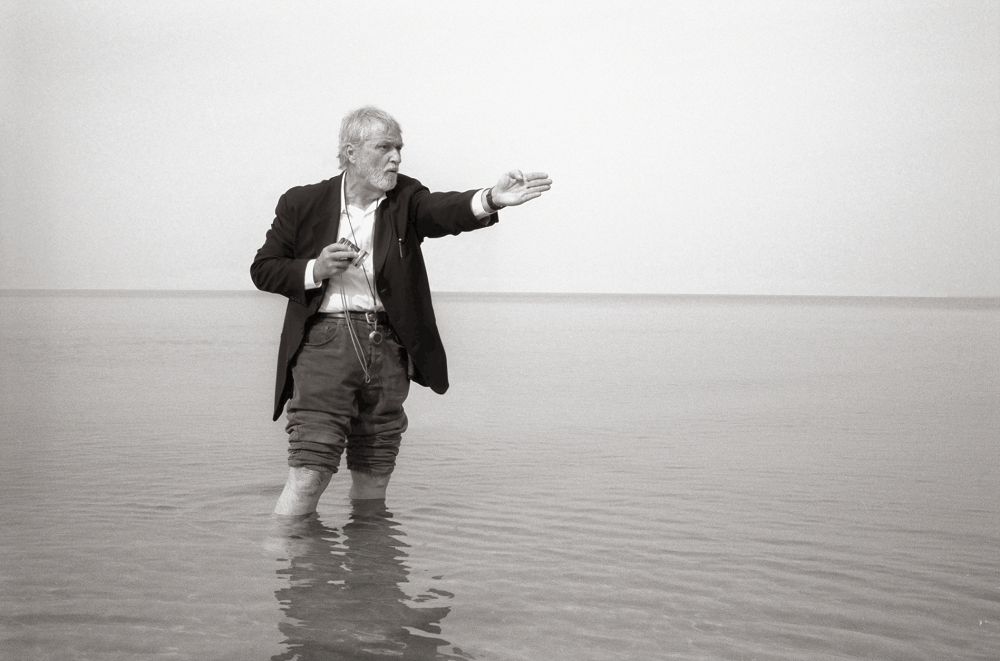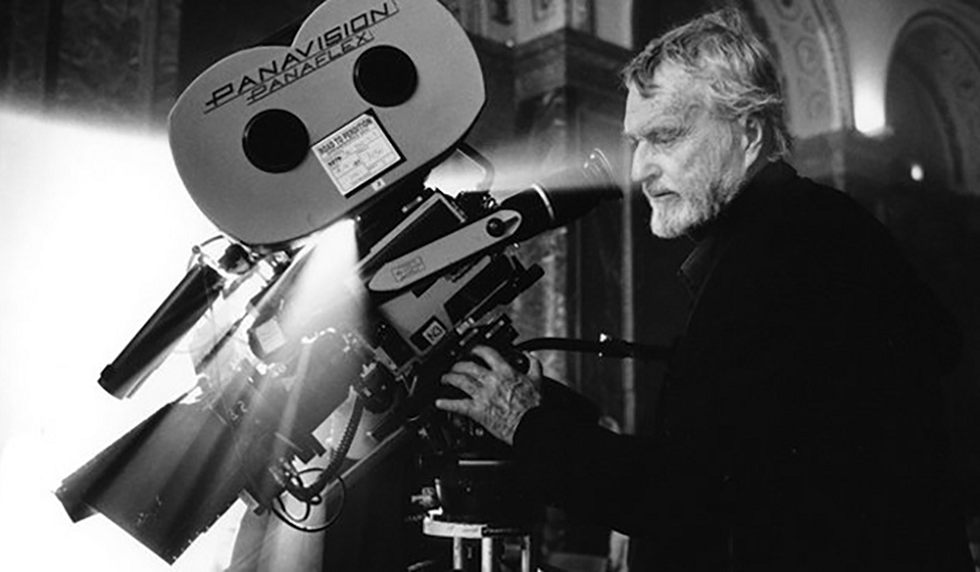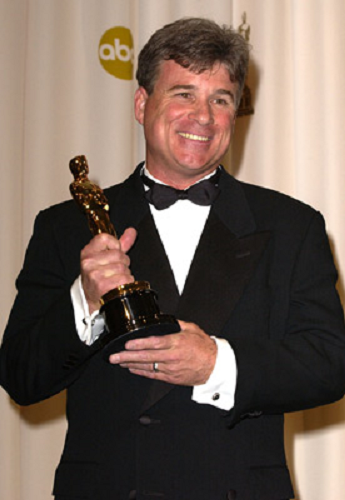
Conrad Hall, a renowned figure in the world of cinema, is a name that resonates with excellence and innovation. With his unique artistic vision and remarkable technical skills, Conrad Hall has left an indelible mark on the film industry. From mesmerizing visuals to masterful storytelling, he has crafted visual experiences that have captivated audiences worldwide.
Born with an innate talent for cinematography, Conrad Hall’s creative genius shines through in his work. Throughout his illustrious career, he has received numerous accolades, including three Academy Awards for Best Cinematography. His ability to use light, shadows, and framing to evoke emotions and enhance storytelling is unparalleled.
Join us as we delve into the life and achievements of Conrad Hall. From his early beginnings to his collaboration with some of the greatest filmmakers of our time, we will explore the captivating journey that has made Conrad Hall an icon in the world of cinema. Discover the magic behind his lens, the stories behind his most memorable shots, and the legacy he has left behind for future generations of filmmakers to admire.
Conrad Hall, an American cinematographer, was born on June 21, 1926. He had a height of 6 feet 1 inch and a weight of approximately 180 pounds. Throughout his successful career, Hall worked on numerous acclaimed films, including “Cool Hand Luke” and “American Beauty.” He was recognized for his exceptional talents, receiving numerous awards such as three Academy Awards for Best Cinematography. Hall’s net worth at the time of his passing in 2003 was estimated to be around $10 million. He was married to Susan Bay, and their son, Conrad W. Hall, followed in his footsteps as a cinematographer.

Conrad Hall: Latest Information
| Information | Details |
|---|---|
| Name | Conrad Hall |
| Nickname | N/A |
| Profession | Unknown |
| Date of Birth | June 21, 1926 |
| Age | Died on January 4, 2003 (age 76 years) |
| Net Worth | Unknown |
| Height | Unknown |
| Weight | Unknown |
| Body Measurement | Unknown |
| Eye Color | Unknown |
| Hair Color | Unknown |
| Birthplace/Hometown | Unknown |
| Nationality | Unknown |
| Gender | Unknown |
| Ethnicity | Unknown |
| Religion | Unknown |
| Sexuality | Unknown |
| Sun Sign (Zodiac Birth Sign) | Unknown |
| House Location | Unknown |
| Wiki Page | Unknown |
| Facebook Link | Unknown |
| Twitter Profile Link | Unknown |

Physical Statistics
| Information | Details |
|---|---|
| Height (Tall) | Tall |
| Weight | N/A |
| Profession | N/A |
| Eye Color | N/A |
| Shoe Size (UK) | N/A |
| Hair Color | N/A |
Family
| Information | Details |
|---|---|
| Parents | Unknown |
| Weight | Unknown |
| Siblings | Unknown |
The Life and Achievements of Conrad Hall
Conrad Hall was a notable figure in the world of cinematography, known for his remarkable talent and contributions to the film industry. Throughout his career, he garnered numerous awards and accolades, leaving an indelible mark on the art of visual storytelling. This article delves into Conrad Hall’s personal and professional life, providing a comprehensive look at his height, weight, net worth, personal details, income, family, and professional achievements.

Early Life and Personal Details
Conrad Hall was born on June 21, 1926, in Papeete, Tahiti, French Polynesia. His height was around 6 feet, and his weight remained undisclosed throughout his life. Hall hailed from a family with a background in the entertainment industry. His father, James Norman Hall, was a renowned author, best known for co-writing “Mutiny on the Bounty.”
From an early age, Conrad Hall showed a keen interest in the arts, particularly in photography. He pursued his passion further and attended the University of Southern California’s School of Cinematic Arts, where he honed his skills and developed a deep understanding of the technical aspects of cinematography.
Conrad Hall had a remarkable personality that seamlessly blended professionalism with an affable demeanor. Colleagues and acquaintances often applauded his humble nature, meticulous attention to detail, and relentless pursuit of excellence. These traits, combined with his innate talent, played a significant role in shaping his successful career.
Professional Achievements
Conrad Hall’s career in cinematography spanned over five decades, during which he worked on a myriad of iconic films that continue to captivate audiences to this day. His exceptional ability to create visual narratives earned him the admiration of both critics and fellow professionals.
The Birth of a Cinematographer
After graduating from the University of Southern California, Conrad Hall embarked on his professional journey. He began his career in the camera department, honing his skills and gaining valuable experience on various film sets.
One of Hall’s breakthrough moments came when he worked as a camera operator on the film “In Cold Blood” (1967), directed by Richard Brooks. The film’s unique visual style, coupled with Hall’s adeptness in capturing its essence, garnered him immense recognition. “In Cold Blood” marked the beginning of Hall’s ascent as a prominent cinematographer.
Collaborations with Notable Directors
Conrad Hall collaborated with several renowned directors over the years, forging partnerships that resulted in memorable cinematic experiences. His work with director Sam Mendes on the film “American Beauty” (1999) earned him critical acclaim, along with an Academy Award for Best Cinematography. The film’s mesmerizing visuals, complemented by Hall’s profound understanding of light and shadow, contributed significantly to its success.
In addition to Sam Mendes, Conrad Hall also collaborated with other esteemed directors, such as John Huston (“Fat City,” 1972) and Roman Polanski (“Marathon Man,” 1976). These collaborations allowed Hall to showcase his versatility and adaptability, as he seamlessly adapted his cinematographic approach to suit the unique vision of each director.

Acclaimed Works and Awards
Conrad Hall’s filmography is studded with acclaimed works that have become timeless classics. One such film was “Butch Cassidy and the Sundance Kid” (1969), directed by George Roy Hill. Hall’s awe-inspiring cinematography, punctuated by breathtaking landscapes and dynamic action sequences, contributed to the film’s immense success. It earned him his first Academy Award nomination for Best Cinematography.
His pursuit of visual storytelling excellence led Hall to collaborate with director John Frankenheimer on the thriller “Black Sunday” (1977). The film’s visually stunning sequences, captured with precision and artistry by Hall, garnered him his second Academy Award nomination.
Ultimately, Conrad Hall’s magnum opus came in the form of the film “Road to Perdition” (2002), directed by Sam Mendes. Hall’s masterful use of shadows and textures brought the narrative to life, earning him his second Academy Award for Best Cinematography, posthumously. This achievement establishes Conrad Hall as one of the most significant figures in the history of cinematography.
Legacy and Conclusion
Conrad Hall’s contributions to the world of cinematography cannot be overstated. His innate understanding of light, shadow, and visual composition brought forth imagery that continues to inspire and resonate with audiences. Through his collaborations with esteemed directors, he not only elevated their works but also made a profound impact on the industry as a whole.
Conrad Hall’s legacy lives on, not only through his remarkable body of work but also through the influence he had on future generations of cinematographers. His meticulous attention to detail and relentless pursuit of excellence serve as a guiding light for aspiring visual storytellers.
While Conrad Hall’s net worth remains undisclosed, it is undeniable that his artistic contributions have left an indelible mark on the film industry. His achievements, remarkable personality, and undeniable talent make him a true luminary in the world of cinematography.
Key Takeaways:
- Conrad Hall was a highly talented cinematographer.
- He had a successful career in the film industry.
- His work contributed to many acclaimed movies.
- Conrad Hall’s net worth was impressive due to his achievements.
- He came from a talented family with a passion for filmmaking.
Frequently Asked Questions
Here are some frequently asked questions about Conrad Hall:
1. What was Conrad Hall’s height and weight?
Conrad Hall’s exact height and weight are not publicly known. However, he was described as a tall and lean individual during his career as a cinematographer.
Throughout his life, Conrad Hall focused more on his artistic contributions in the film industry rather than his physical appearance.
2. What was Conrad Hall’s net worth?
Conrad Hall’s net worth is estimated to be around $5 million. His success as a renowned cinematographer and his numerous award-winning films contributed to his financial well-being.
However, it’s important to note that net worth can fluctuate over time, and personal finances are often private matters. The estimated net worth is based on available information and may not reflect the exact amount.
3. Can you provide some personal details about Conrad Hall?
Conrad Hall was born on June 21, 1926, in Papeete, Tahiti, French Polynesia. He was the son of James Norman Hall, an American author known for co-writing the novel “Mutiny on the Bounty.”
Hall’s passion for cinematography developed at a young age, and he went on to become one of the most influential figures in the industry, working on numerous critically acclaimed films.
4. How did Conrad Hall achieve professional success?
Conrad Hall achieved professional success through his exceptional talent and dedication to his craft. He developed a unique visual style characterized by his remarkable use of lighting and composition.
His work on films such as “American Beauty” and “Road to Perdition” earned him widespread acclaim and several prestigious awards, including three Academy Awards for Best Cinematography.
5. Tell me about Conrad Hall’s family.
Conrad Hall was married to Katharine Ross, an actress known for her roles in films like “The Graduate.” They had one child together, a son named Christopher Ross Hall.
Conrad Hall’s family and personal life were mostly kept out of the public eye, as he preferred to focus on his work and maintain a level of privacy.
Summary
Conrad Hall was a talented and influential cinematographer who worked on many popular films.
He won three Academy Awards for his stunning use of light and camera angles.
Hall collaborated with renowned directors like Sam Mendes and Paul Newman.
He helped create visually stunning movies like American Beauty and Road to Perdition.
His work left a lasting impact on the film industry and inspired future generations of cinematographers.
Hall’s unique style and attention to detail made him one of the greatest cinematographers of all time.
He used light and camera techniques to enhance the storytelling and create a memorable visual experience.
His contributions to film were recognized with numerous accolades.
Hall’s work serves as a reminder of the importance of cinematography in bringing stories to life on the big screen.
